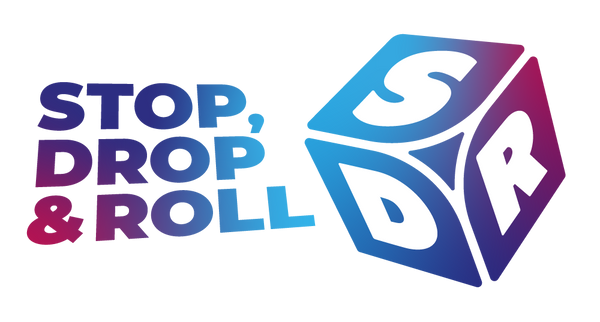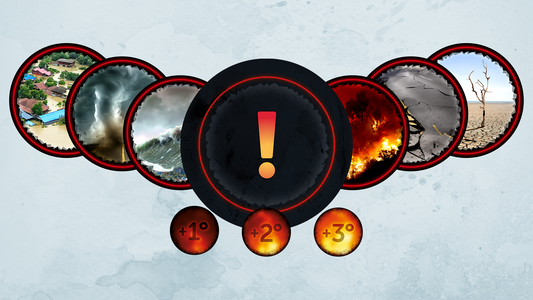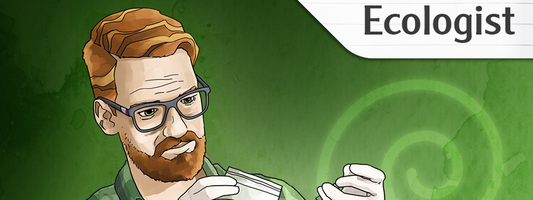//This Dev Blog was originally posted as an update on the Earth Rising Kickstarter on September 10th, 2021//
Today we’re going to take on the heavy subject of poverty. Don’t worry, there’s plenty of positive parts to this! ;)
Earth Rising recognises that poverty is a major barrier to a sustainable world, and that tackling it is a necessary step in transforming our world away from the unsustainable state it’s in today.
But why? After all, industrial processes have a far greater impact on our world than any single person, in poverty or otherwise!
Absolutely - and yet poverty has many meanings. It isn't just homelessness, but also refers to people who have so little economic freedom that they're at the mercy of the cheapest option.
85% of the world live on less than $30 per day, two-thirds live on less than $10 per day, and every tenth person lives on less than $1.90 per day. (In each of these statistics price differences between countries are taken into account to adjust for the purchasing power in each country.) The people within those brackets have less access to essential aspects of basic living - food, water, energy, education and opportunity.
When considering this, remember that there are very nearly eight billion people on our planet (7.8 at the time of writing this!), making over 6 billion people dependent on less than $30 per day ($10,950 per year). I’ll raise my hands here in honesty folks, I’m one of them!
But it used to be a lot worse!
It was only a few generations ago that almost everyone would have fit within the $1.90 bracket, known as “Extreme Poverty”. As our technological capabilities and production have increased, so too has our economic capacity, lifting much of the world out of extreme poverty and into a better state. So, that’s great, right?
Yes, it is! Or, at least, it was. But the truth of it is that the modern world has the economic capacity to uplift everyone out of poverty.

Our developed societies have everything they need to provide support and insurance of a quality of life for everyone within it. The very few developed countries that still have extreme poverty within them are those that have the highest income inequality, showing that it isn’t simply a case of a country getting richer (as is the assumption with GDP focused governance) resulting in an alleviation of poverty, but a question of ensuring access and fair wealth distribution within that society.
Sounds good, what’s the problem?
I mean, don’t get me wrong, it’s fantastic news that poverty has been declining at an exceptional rate since the 1960s! Clearly we’re getting there, even if it’s taking longer than we’d like, right?
Unfortunately, reports from the UN and World Bank have shown that in the last few years, and increasingly so since the pandemic of COVID-19 (but beginning as far back as 2017), poverty is on the rise. Estimates from across the world expect between 119 and 124 million new people forced into poverty this year, and warnings that if we don’t increase “shared prosperity” within our nations and instead continue to focus on short term solutions, the quantity falling into poverty will only get higher with each passing year.

Poverty is not something we can afford to sit back and ignore, and as our climate crisis causes increasing troubles in the form of disasters and shortages, inequality is only set to rise further.
Except it isn’t the poor that are the real cause of the Strain produced from poverty
The wooden meeple within the poverty hole in Earth Rising represent all three tiers of poverty, but more than that, they’re a representation of the wealth inequality present within the society that Earth Rising represents.
The truth is that the global poor don’t actually cause the Strain causing climate change, but they do suffer the most from it.
All the way back in 2015, Oxfam released their Extreme Carbon Inequality Report, stating their findings that the richest 10% of the world produce more “Strain” (in Earth Rising terms) upon the planet than the poorest 50%.
Meanwhile, whenever the poor get poorer, the rich get richer, even (perhaps especially) during times of crisis. As wealth inequality grows, so too does our harm on the planet. The wooden people you see on your board aren’t the primary causes of the Strain, but they certainly are the biggest victims!

I know this has been a long (and heavy) one, so if you’re still with me, thanks for reading along!
Earth Rising has so many complex subjects embedded into it, I hope these summations of my research and learnings are interesting!

Enjoying Earth Rising's Dev Blog? Leave a comment below, or read on in Dev Blog 9 - The Grass-Roots Politician; Transforming Our World from Within




